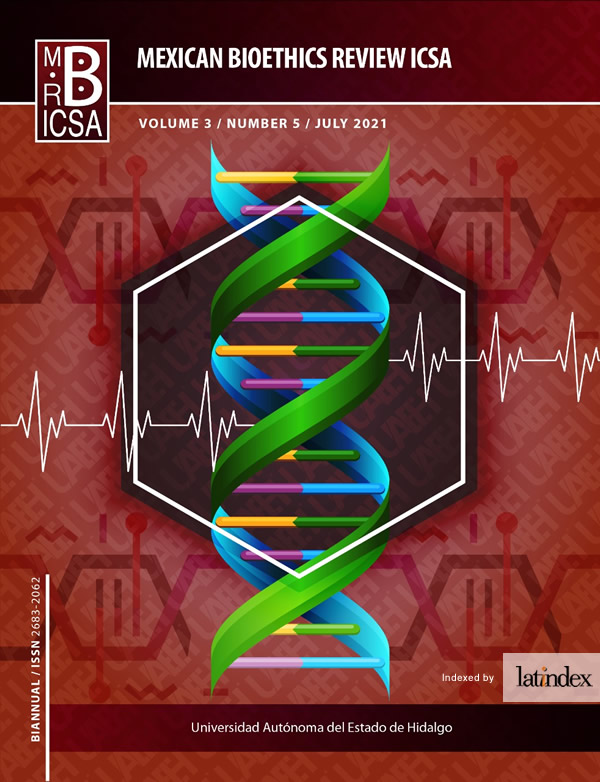Medical Practice in the COVID-19 Crisis, an Unsafe Practice
DOI:
https://doi.org/10.29057/mbr.v3i5.6300Keywords:
Bioethics, pandemic, medical crisisAbstract
The situation humanity is currently experiencing is an unforeseen event for which we were not prepared. Unquestionably, the health systems in the world collapsed along with the increase in positive cases of COVID-19. Medical personnel and members of other health care disciplines did not have the necessary training to carry out the necessary protection when dealing with infected patients, however, it was work that had to be done. The death of the first doctors was the turning point at which it was evident that high security measures were required, as well as sufficient training for them to continue their work. Despite the measures implemented, contagion remained a reality. Added to this, at least in our country, the response of the population, which in many cases has been negative, accompanied by attacks on staff, damage to infrastructure and violation of the fundamental rights of other patients. The objective of this article is to present the current situation and help to create awareness of the risk that doctors and other health workers experience in their day to day, since the beginning of this pandemic.
Downloads
Publication Facts
Reviewer profiles N/A
Author statements
- Academic society
- N/A
- Publisher
- Universidad Autónoma del Estado de Hidalgo
References
Castro, R. & Villanueva-Lozano, M. (2018). Violence in medical practice in Mexico: a case of sociological ambivalence. Estudios sociológicos, 36(108), 539-569. https://doi.org/10.24201/es.2018v36n108.1648.
Collins, R. (2008). Violence: a micro sociological theory. Princeton, Oxford: Princeton University Press.
Chen, N., Zhou, M., Dong, X., Qu. J., Gong. F., Han, Y., Qiu, Y., Wang, J., Liu, Y., Wei, Y., Xia, J., Yu, T., Zhang, X. & Zhang, L. (2020). Epidemiological and clinical characteristics of 99 cases of 2019 novel coronavirus pneumonia in Wuhan, China: a descriptive study. The Lancet, 395, 507-513. Doi: 10.1016/S0140-6736(20)30211-7.
Decree DOF: 27/03/2020. by which extraordinary actions are declared in the affected regions of the entire national territory in matters of general health to combat the serious disease of priority attention generated by the SARS-CoV2 virus (COVID-19). March 27, 2020.
Agreement DOF: 23/03/2020. Ministry of the Interior. AGREEMENT whereby the General Health Council recognizes the epidemic of SARS-CoV2 virus disease (COVID-19) in Mexico, as a serious disease of priority attention, as well as establishes the activities for preparedness and response to such epidemic.
Agreement DOF: 30/03/2020. Ministry of the Interior. AGREEMENT declaring the epidemic of disease generated by the SARS-CoV2 virus (COVID-19) as a sanitary emergency due to force majeure. March 30, 2020.
Agreement DOF: 14/05/2020. Ministry of the Interior. AGREEMENT modifying the one that establishes a strategy for the reopening of social, educational and economic activities, as well as a traffic light system by regions to evaluate weekly the epidemiological risk related to the reopening of activities in each federal entity, as well as establishing extraordinary actions. May 14, 2020.
General Health Law. DOF 19-02-2021. Title Ten. Extraordinary Action in General Health Matters. Sole Chapter. February, 19, 2021.
Merton, R. (1980). Ambivalencia sociológica y otros ensayos. Espasa-Calpe, Colección Boreal.

















